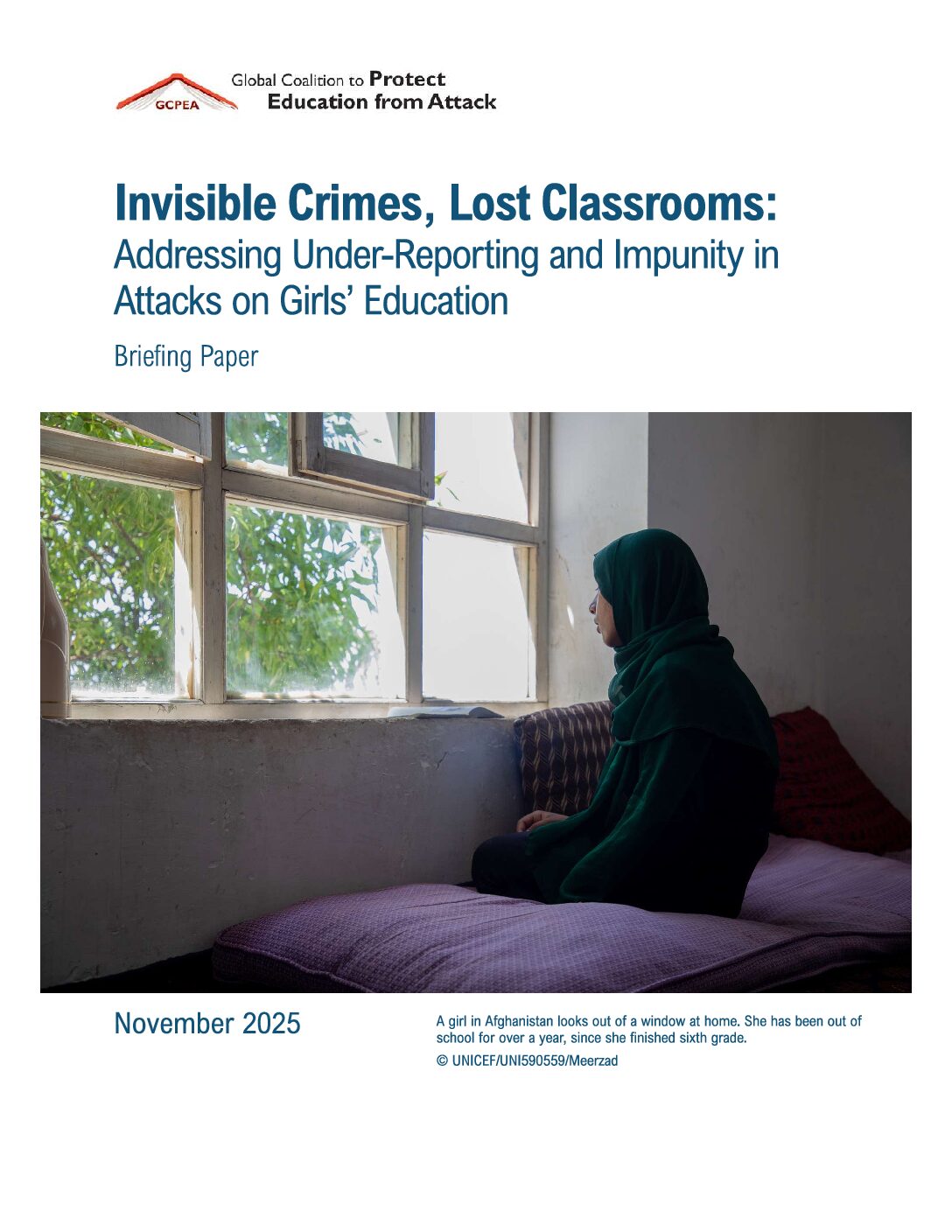GCPEA News
Sudanese School Closed by Pandemic, Kept Closed by Armed Forces
Authorities Should Urgently Remove Armed Forces, Reopen Girls' School
Alex Firth, Human Rights Watch, July 29, 2020

On vehicles mounted with machine guns, armed paramilitaries took over a girls’ primary school on June 14, 2020, according to a local human rights organization.
The armed men, from Sudan’s Rapid Support Forces, dug a trench around the school, which is in Kadugli, the capital of Sudan’s Southern Kordofan state, and began using it as a training base.
Luckily, the school was not in use at the time. Like countless others around the world, it is currently closed due to the Covid-19 pandemic. However, the school was supposed to reopen for students to sit secondary-school entrance exams. The paramilitaries have still not let residents near the school, and the state governor has taken no action.
The long-running civil conflict in Southern Kordofan has already left too many children out of school. While fighting has subsided following the ouster of previous president Omar al-Bashir in April 2019, the government and rebels have yet to sign a peace deal.
Girls everywhere are at a heightened risk of not resuming their education following school closures. They face unique pressures including gender bias, child marriage, and sexual violence and harassment in schools. In Sudan, these factors, among others, have kept 49 percent of primary school-age girls out of class. The prolonged closure of this school, first because of the pandemic, and now because of the military, means some girls may never go back to their classrooms again.
Soldiers taking over schools for training purposes, weapon storage, or strategic aims is nothing new in Sudan or elsewhere across the world. However, the timing, coinciding with the global shutdown of schools, is disastrous. Education systems in conflict-affected countries are fragile, and students are already struggling to continue learning.
We need more positive examples, like the recent decision by the Syrian Democratic Forces to vacate 10 schools and issue command orders regulating the military use of schools.
Sudan endorsed the Safe Schools Declaration in 2015, which includes a pledge to protect schools from military use. Sudan was praised when it subsequently circulated a command order prohibiting military use of schools, and vacated three schools.
Sudan’s new transitional government has committed to upholding rights and democratic principles. By not protecting all schools, it is failing to live up to these promises and risks unnecessarily prolonging the pandemic’s damage.



